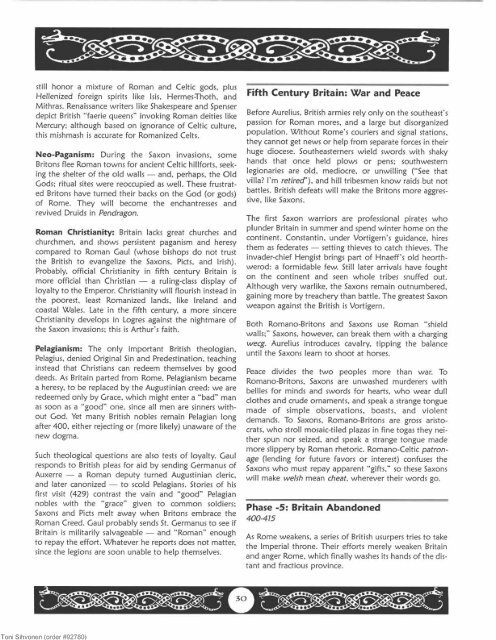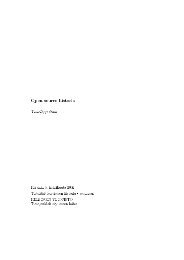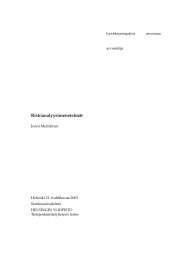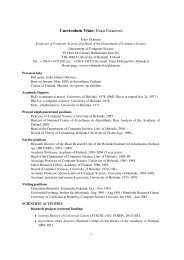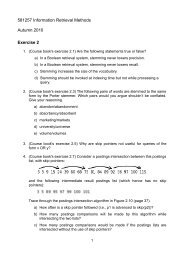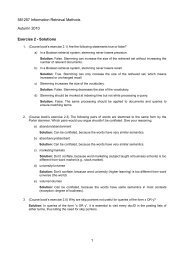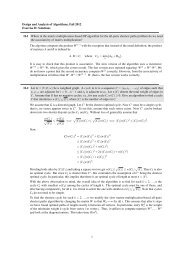Toni Sihvonen (order #92780) 62.142.248.1
Toni Sihvonen (order #92780) 62.142.248.1
Toni Sihvonen (order #92780) 62.142.248.1
You also want an ePaper? Increase the reach of your titles
YUMPU automatically turns print PDFs into web optimized ePapers that Google loves.
<strong>Toni</strong> <strong>Sihvonen</strong> (<strong>order</strong> <strong>#92780</strong>) 6<br />
still honor a mixture of Roman and Celtic gods, plus<br />
Hellenized foreign spirits like Isis, HermesThoth, and<br />
Mithras. Renaissance writers like Shakespeare and Spenser<br />
depict British “faerie queens” invoking Roman deities like<br />
Mercury: although based on ignorance of Celtic culture,<br />
this mishmash is accurate for Romanized Celts.<br />
Neo-Paganism: During the Saxon invasions, some<br />
Britons flee Roman towns for ancient Celtic hillforts, seeking<br />
the shelter of the old walls - and, perhaps, the Old<br />
Gods; ritual sites were reoccupied as well. These frustrated<br />
Britons have turned their backs on the God (or gods)<br />
of Rome. They will become the enchantresses and<br />
revived Druids in Pendragon.<br />
Roman Christianity: Britain lacks great churches and<br />
churchmen, and shows persistent paganism and heresy<br />
compared to Roman Gaul (whose bishops do not trust<br />
the British to evangelize the Saxons, Picts, and Irish).<br />
Probably, official Christianity in fifth century Britain is<br />
more official than Christian - a ruling-class display of<br />
loyalty to the Emperor. Christianity will flourish instead in<br />
the poorest, least Romanized lands, like Ireland and<br />
coastal Wales. Late in the fifth century, a more sincere<br />
Christianity develops in Logres against the nightmare of<br />
the Saxon invasions: this is Arthur’s faith.<br />
Pelagianism: The only important British theologian,<br />
Pelagius, denied Original Sin and Predestination, teaching<br />
instead that Christians can redeem themselves by good<br />
deeds. As Britain parted from Rome, Pelagianism became<br />
a heresy, to be replaced by the Augustinian creed: we are<br />
redeemed only by Grace, which might enter a “bad” man<br />
as soon as a “good” one, since all men are sinners without<br />
God. Yet many British nobles remain Pelagian long<br />
after 400, either rejecting or (more likely) unaware of the<br />
new dogma.<br />
Such theological questions are also tests of loyalty. Gaul<br />
responds to British pleas for aid by sending Germanus of<br />
Auxerre - a Roman deputy turned Augustinian cleric,<br />
and later canonized - to scold Pelagians. Stories of his<br />
first visit (429) contrast the vain and “good” Pelagian<br />
nobles with the “grace” given to common soldiers:<br />
Saxons and Picts melt away when Britons embrace the<br />
Roman Creed. Gaul probably sends St. Germanus to see if<br />
Britain is militarily salvageable - and “Roman” enough<br />
to repay the effort. Whatever he reports does not matter,<br />
since the legions are soon unable to help themselves.<br />
Fifth Century Britain: War and Peace<br />
Before Aurelius. British armies rely only on the southeast’s<br />
passion for Roman mores, and a large but disorganized<br />
population. Without Rome’s couriers and signal stations,<br />
they cannot get news or help from separate forces in their<br />
huge diocese. Southeasterners wield swords with shaky<br />
hands that once held plows or pens: southwestern<br />
legionaries are old, mediocre, or unwilling (“See that<br />
villa? I’m retired“), and hill tribesmen know raids but not<br />
battles. British defeats will make the Britons more aggressive,<br />
like Saxons.<br />
The first Saxon warriors are professional pirates who<br />
plunder Britain in summer and spend winter home on the<br />
continent. Constantin, under Vortigern’s guidance, hires<br />
them as federates - setting thieves to catch thieves. The<br />
invader-chief Hengist brings part of Hnaeff’s old heorthwerod:<br />
a formidable few. Still later arrivals have fought<br />
on the continent and seen whole tribes snuffed out.<br />
Although very warlike, the Saxons remain outnumbered,<br />
gaining more by treachery than battle. The greatest Saxon<br />
weapon against the British is Vortigern.<br />
Both Romano-Britons and Saxons use Roman “shield<br />
walls:” Saxons, however, can break them with a charging<br />
wecg. Aurelius introduces cavalry, tipping the balance<br />
until the Saxons learn to shoot at horses.<br />
Peace divides the two peoples more than war. To<br />
Romano-Britons, Saxons are unwashed murderers with<br />
bellies for minds and swords for hearts, who wear dull<br />
clothes and crude ornaments, and speak a strange tongue<br />
made of simple observations, boasts, and violent<br />
demands. To Saxons, Romano-Britons are gross aristocrats,<br />
who stroll mosaic-tiled plazas in fine togas they neither<br />
spun nor seized, and speak a strange tongue made<br />
more slippery by Roman rhetoric. Romano-Celtic patronage<br />
(lending for future favors or interest) confuses the<br />
Saxons who must repay apparent “gifts,” so these Saxons<br />
will make welsh mean cheat, wherever their words go.<br />
Phase -5: Britain Abandoned<br />
400-4 15<br />
As Rome weakens, a series of British usurpers tries to take<br />
the Imperial throne. Their efforts merely weaken Britain<br />
and anger Rome, which finally washes its hands of the distant<br />
and fractious province.


